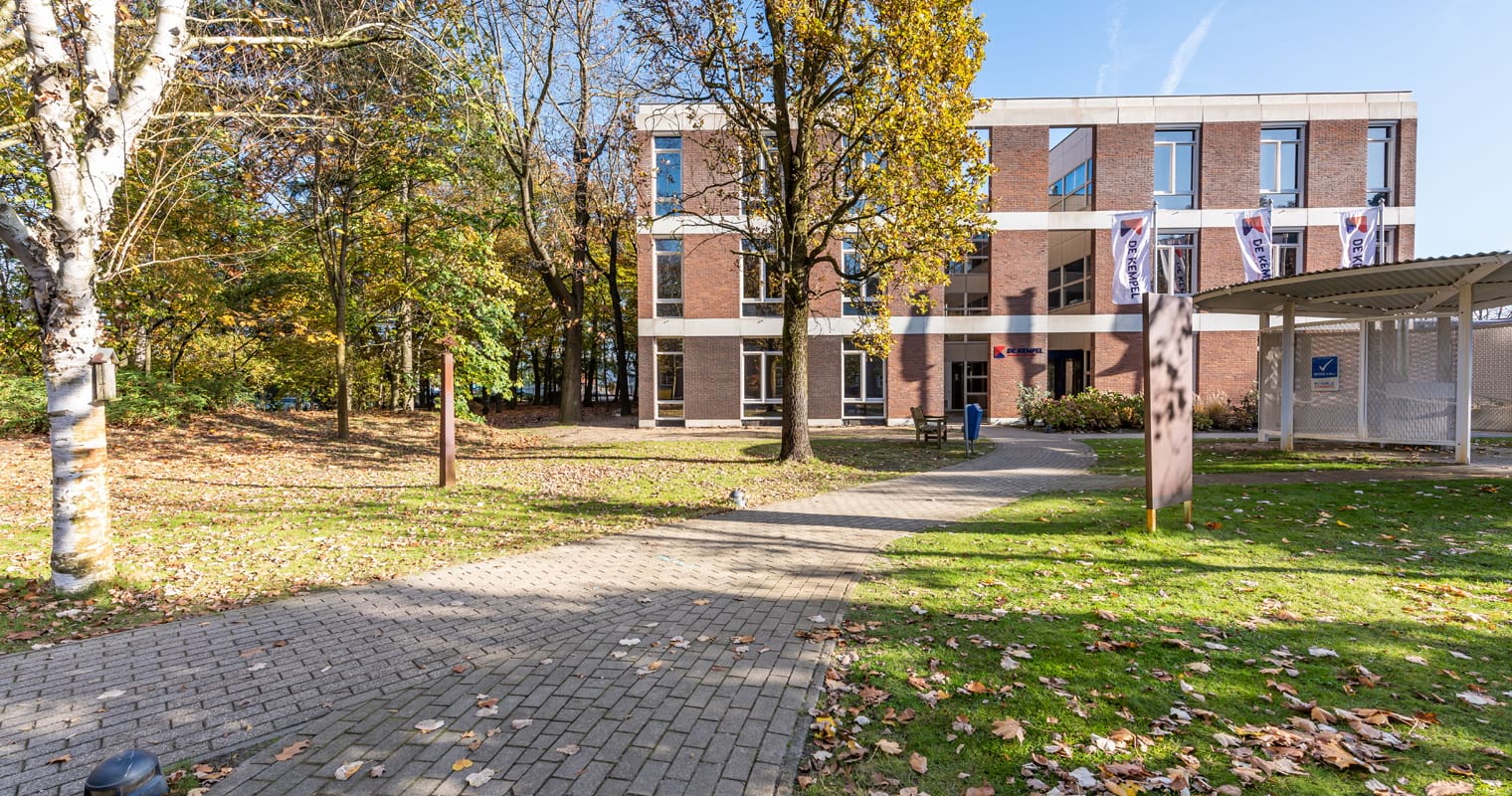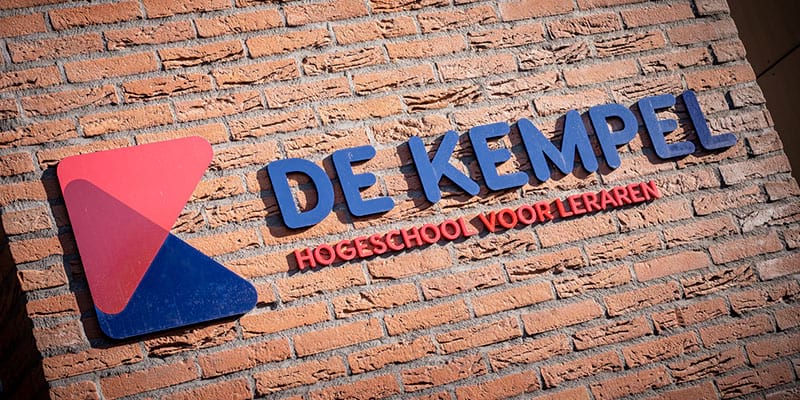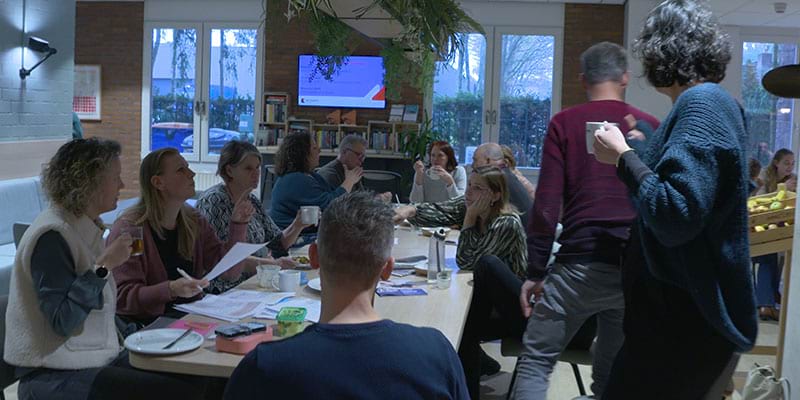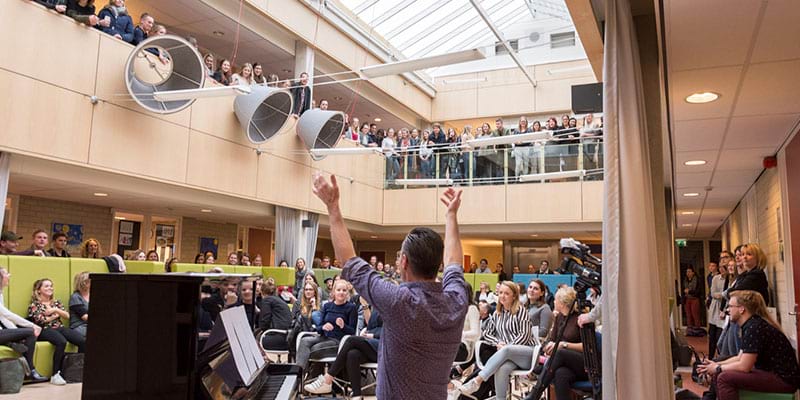One-of-a-kind achievement: De Kempel’s remarkable eNPS success story


Hogeschool de Kempel is a leader in educational quality, having been recognized as the best Pabo* in the Netherlands by the Keuzegids higher education guide for an impressive ninth consecutive year. At the heart of its continuous success is a people-centric approach, encompassing both students and employees.
De Kempel university of Applied Sciences shares their experiences and insights that underpin their thriving employee culture.
*Pabo (in Dutch: Pedagogische academie voor het basisonderwijs) is the name given to teacher training universities specializing in primary education.

The heartbeat of de Kempel University of Applied Sciences
The coffee room at de Kempel university of Applied Sciences is the place where employees connect the most. Robert Verbruggen, the Chairman of the Board of Governors at de Kempel, refers to it as “the organization’s beating heart.”
Serving as a hub for relaxation and storytelling, whether about personal life or work matters, the coffee room’s ambiance is warmly described by Linda Teeuwen, HRM Policy Advisor at de Kempel: “A dedicated hostess ensures that employees have everything they need, ranging from fresh fruit to snacks and beverages.”
However, the coffee room represents just the tip of the iceberg in the university’s approach to employee wellness. Verbruggen explains, ” We trust our employees and believe in autonomy. The tasks are carried out, even if this requires more than expected. Sometimes, we even have to encourage them to leave on time.”
Clear communication is crucial in promoting employee wellbeing, a principle deeply embedded in the university’s DNA.

Employee wellbeing is a top priority
Just as we continually strive for small, incremental improvements in education, we apply the same principle to our employees’ wellbeing.
At de Kempel, employee wellbeing is integral to their educational philosophy and seamlessly integrates into their employee policies. “Just as we continually strive for small, incremental improvements in education, we apply the same principle to our employees’ wellbeing,” explains Verbruggen.
Teeuwen highlights the importance of self-care, noting, “When people take good care of themselves, they also do well in their roles here.” To support this, employees have access to weekly chair massages and are encouraged to participate in sports activities. The organization also organizes regular lunches and workshops focused on exercise, sleep, and nutrition.
Adopting a holistic approach, the university not only focuses on physical and mental health but also extends its support to encompass the financial wellbeing of its employees whenever possible.
In addition to wellbeing initiatives, regular evaluation sessions are key opportunities to listen to and address the experiences and needs of employees.
Two-way dialogues for increased job satisfaction
Instead of traditional performance reviews, we engage in two-way dialogues where we focus not just on current work progress, but also on what employees believe is important for maintaining their enthusiasm and ability to excel in their roles.
Work happiness at de Kempel is fundamental to the organization’s success. “As a small team of 115 people, we find it crucial that our colleagues feel a strong sense of connection with each other and with the organization,” notes Verbruggen.
Fostering this environment demands attention, mutual understanding, and tangible actions addressing employee needs. Verbruggen elaborates, “Instead of traditional performance reviews, we engage in two-way dialogues where we focus not just on current work progress, but also on what employees believe is important for maintaining their enthusiasm and ability to excel in their roles.”
The university stands out by actively listening to its employees and implementing their feedback, thereby making a real difference.
Assessing employee perceptions of work
De Kempel not only relies on the close communication channels between its employees and management but also uses objective methods to assess how employees perceive their work environment.
Teeuwen highlights that while the institution’s informal culture and frequent interactions offer valuable insights into employees’ feelings, they also use the HBO Work Experience Scan. This tool, developed in partnership with InternetSpiegel, Zestor, and the Association of Universities of Applied Sciences, complements the informal conversations by providing a platform for employees to anonymously express their opinions on factors affecting their work.
This scan helps uncover underlying problems, aiming to sustain and improve wellbeing within the organization where needed.
In addition to these evaluations, the university’s strong employer brand also reflects how valued and engaged employees feel at de Kempel university.

A powerful employer brand
Hogeschool de Kempel has adopted the Employee Net Promoter Score (eNPS) as a measure of employee sentiment. This score reflects the likelihood of employees recommending their organization as a desirable place to work.
Standing out with an impressive score of 90 on a scale ranging from -100 to +100, de Kempel university of Applied Sciences notably surpasses the norm. In comparison, the average score across the higher education sector is 9. This means that de Kempel’s score is remarkably 10 times higher than the sector average.
Celebrating such achievements is a year-end tradition. As Teeuwen points out, celebrating these successes contributes to the positive work culture at de Kempel.
Employees do what gives them energy
Employee surveys and eNPS measurements aren’t just ready-made solutions; they enhance the initiatives at de Kempel university, including the open conversations between supervisors and employees.
“Teachers enjoy working with students, they are not fixated on KPIs. Although we have them, we use these indicators subtly as steering tools. We avoid burdening colleagues with tasks that drain their energy, instead focusing on what gives them energy.”
Thanks to its open culture and flat hierarchy, employees at de Kempel university of Applied Sciences like to share their experiences, passions, and goals for the future. These conversations spark initiatives within the organization, driving its consistent success over the years.

People are the most significant asset for success
The title of ‘best Pabo university in the Netherlands’ makes de Kempel proud of its employees and their efforts. Verbruggen says, “We don’t believe in the ranking, but rather in a vision that drives us towards the ranking.”
A well-functioning organization relies on its employees. “If your employees are doing well, your organization does well too… Your most significant asset is your people. That’s why we have to keep track of their development; otherwise, it’s a missed opportunity.”
These employees, particularly the teachers, are the ones who embody the university’s vision. “We aim to teach our students that ‘your world is just one among many, and you should approach others’ worlds without immediate judgment.’ Being open to others and recognizing that together we know more is something we believe we do well.”
The success of de Kempel university of Applied Sciences is a result of a mix of factors that collectively lead to positive outcomes for students, employees, and the organization as a whole.
Do you also want to gain more insight into what your employees think of your organization? Start today with InternetSpiegel.
Book a free demo. See our solutions in action.
Effectory is Europe’s Leading provider of Employee Listening Solutions. Schedule a product demo and discover how to enhance your employees’ engagement.
Demo request
